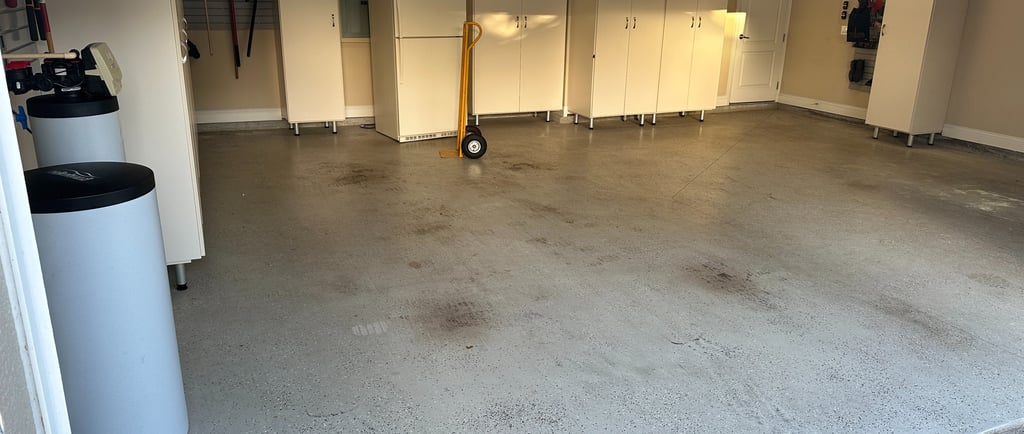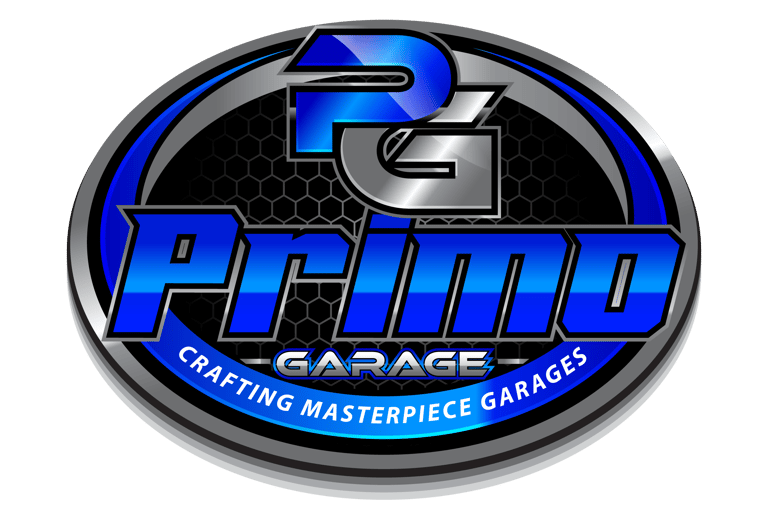“Why Garage Floor Coatings Fail”
A clear breakdown of the most common reasons garage floor coatings fail—and how to avoid them by choosing the right prep, products, and installer.
Primo Install Team
4/30/20252 min read


Why Some Garage Floor Coatings Fail (And How to Avoid It)
Garage floor coatings can completely change the look and feel of your space—but they don’t all last. If you’ve seen peeling, flaking, or hot tire marks just months after a new install, that’s a failed coating—and it usually comes down to shortcuts, cheap products, or poor technique.
Here’s why it happens—and how to make sure it doesn’t happen to you.
🧼 1. Poor Surface Preparation
This is the #1 reason coatings fail. The surface needs to be clean, dry, and properly profiled to accept a coating. Most failures start here.
Common shortcuts include:
Using only pressure washing or acid washing instead of grinding
Leaving behind moisture, dust, or oily residue
Not removing old sealers or curing agents
Moisture and acid residue actually interfere with the bonding process, causing the coating to bubble, peel, or flake. The right prep method is mechanical grinding, which opens the pores of the concrete so the coating can adhere properly. Anything less is a gamble.
☀️ 2. Using the Wrong Product
Cheap materials might look fine at first, but they don’t hold up. Low solids epoxies and “garage floor paint” just aren’t designed to withstand real wear and tear.
Common failures include:
Hot tire pickup – where the coating peels off with your tires
UV fading – especially in garages with open doors or windows
Wearing through in high-traffic areas
For long-lasting results, you need a high solids epoxy base coat and a polyaspartic topcoat—designed for durability, chemical resistance, and longevity.
🌧️ 3. Unaddressed Moisture in the Slab
Concrete naturally releases moisture vapor. If your floor is coated without checking for moisture, that vapor can get trapped, causing bubbling or delamination over time.
Experienced installers will test your slab for moisture and use moisture-blocking primers or mitigation systems if needed. It’s not always necessary—but skipping this step when it is can ruin the entire job.
🕑 4. Rushed Installation
Even with the right materials, rushing the job ruins the result. Companies that focus on speed often:
Skip or rush through surface prep
Apply coatings too thick or too thin
Don’t allow enough cure time between coats
The floor might look fine when they leave, but these shortcuts often show up weeks or months later when the coating starts to fail.
💵 5. Low-Bid Pricing That Cuts Critical Steps
If you’re getting quotes for $4 per square foot or less, understand what that price leaves out:
No proper grinding (maybe just acid wash)
Bargain-bin materials
Skipped topcoats or single-layer systems
Good materials and proper prep cost more. There’s just no way to deliver a high-quality, multi-layer system at rock-bottom prices.
✅ How to Avoid Coating Failure
Ask your installer:
Do you grind the surface?
What products are you using?
Is there a separate topcoat?
Do you check for moisture?
Who’s actually doing the install?
If they can’t clearly answer those questions, it’s a red flag.
💡 Primo Garage Does It Right
At Primo Garage, we focus on long-term results, not speed or sales gimmicks. Here’s what we do differently:
Grind every floor for a proper mechanical bond
Use industrial-grade epoxy and polyaspartic systems
Apply multi-layer coatings for durability and aesthetics
No shortcuts. No rushed crews. Just solid work done right the first time.
Contacts
info@primogarage.com
Socials
Subscribe to our newsletter
(904) 944-4341
